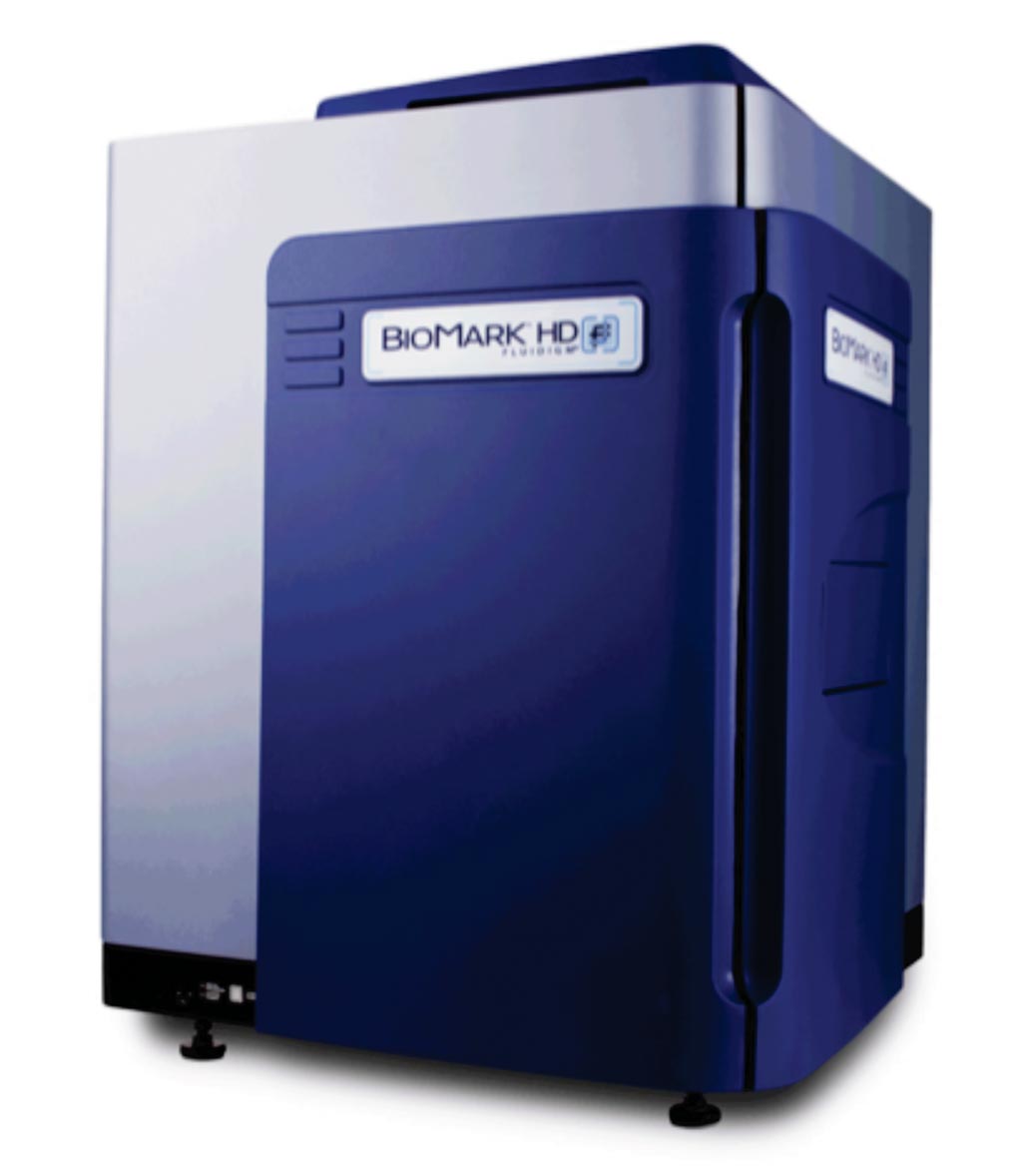New Biomarker Test Improves Diagnosis of Ovarian Cancer
By LabMedica International staff writers
Posted on 03 Jul 2019
Ovarian cancer is often discovered at a late stage and has a high mortality rate. Overall 5-year survival is only 30% to 40% after treatment, and there has been no test specific enough to justify screening.Posted on 03 Jul 2019
Women with accidental findings of an ovarian cyst or with symptoms instead undergo ultrasound and if abnormalities are seen, surgery is the only way to make sure all cancers are detected. This means that many women are operated on without having cancer, resulting in unnecessary surgery and increased risks for women.

Image: The BioMark HD real-time polymerase chain reaction (PCR) platform (Photo courtesy of Fluidigm).
Biomedical scientists from Uppsala University (Uppsala, Sweden) and their colleagues collected plasma samples of women with benign and malignant ovarian tumors. The discovery cohort consisted of 90 patients diagnosed with benign tumors and 79 patients with ovarian cancer stages I–IV. Samples were collected at time for primary surgery under full anesthesia, but before incision. The first replication cohort consisted of 71 patients diagnosed with benign tumors and 100 patients with ovarian cancer stages I–IV, which were collected under the same conditions as the discovery cohort. The second replication cohort consisted of 77 patients with ovarian cancer stages I–IV and the third replication cohort consisted of 106 patients with benign conditions, 28 with borderline diagnosis and 93 with ovarian cancer stages I–IV.
The team compared circulating plasma levels of 593 proteins in three cohorts of patients with ovarian cancer and benign tumors, using the proximity extension assay (PEA). A combinatorial strategy was developed for identification of different multivariate biomarker signatures. A final model consisting of 11 biomarkers plus age was developed into a multiplex PEA test reporting in absolute concentrations. An additional 552 proteins were analyzed using six additional PEA-panels and real-time polymerase chain reaction (PCR) using the Fluidigm BioMark HD real-time PCR platform in the discovery and replication cohorts.
The final model was evaluated in a fourth independent cohort and has an AUC = 0.94, PPV = 0.92, sensitivity = 0.85 and specificity = 0.93 for detection of ovarian cancer stages I–IV. The novel plasma protein signature could be used to improve the diagnosis of women with adnexal ovarian mass or in screening to identify women that should be referred to specialized examination.
Ulf Gyllensten, PhD, Professor of Medical Molecular Genetics and corresponding author of the study, said, “Our results are promising enough to consider screening for early discovery of ovarian cancer. In Sweden, we have long experience of screening for cervical cancer. I see great prospects of developing a strategy for screening for ovarian cancer as well, which could save lives and minimize the need for surgery to rule out cancer.” The study was published on June 20, 2019, in the journal Communications Biology.
Related Links:
Uppsala University













